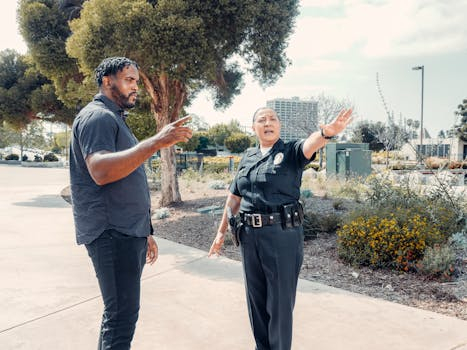Neighborhood safety programs building trust
Feeling safe and secure in your neighborhood is a top priority for most people. However, with crime rates on the rise, it’s important for communities to come together and find ways to build trust and foster a sense of safety. This is where neighborhood safety programs come into play. These programs not only focus on reducing crime, but also on building trust among community members. In this article, we’ll explore the role of neighborhood safety programs in building trust and creating a safer environment for everyone.
The Importance of Neighborhood Safety Programs
Before we delve into the specifics of how these programs build trust, let’s first understand the importance of neighborhood safety programs. These programs are community-driven initiatives aimed at creating a safe and secure environment for residents. They are often led by local authorities and law enforcement, but also involve active participation from residents.
Neighborhood safety programs are crucial in maintaining order and reducing crime in a community. They not only help in identifying and addressing potential threats, but also foster a sense of unity and trust among residents.
Building Trust with Communication
One of the key elements of neighborhood safety programs is open communication. By bringing together community members, local authorities, and law enforcement, these programs create a platform for open dialogue and discussions about safety concerns.
Regular community meetings, town halls, and neighborhood watch programs are some of the ways in which neighborhood safety programs promote communication. These platforms allow residents to voice their concerns and ideas, while also providing the opportunity for law enforcement to address any issues or offer advice on safety measures.
The Power of Collaboration
Neighborhood safety programs also promote collaboration between residents and law enforcement. By working together, residents and law enforcement officers can identify potential safety threats and develop solutions to address them. This not only builds trust among community members, but also creates a sense of ownership and responsibility towards safety in the neighborhood.
Through collaborative efforts, law enforcement can also gain a better understanding of the needs and concerns of the community, and tailor their safety strategies accordingly. This, in turn, can lead to a more effective and efficient approach to maintaining safety in the neighborhood.
Creating a Sense of Community
Neighborhood safety programs bring together people from different backgrounds and walks of life, creating a sense of community. This sense of togetherness and belonging is crucial in building trust among residents. When people feel like they are a part of a community, they are more likely to look out for each other and their surroundings.
In addition, neighborhood safety programs also organize community events and activities, which give residents the opportunity to come together and build relationships. Having a close-knit community not only fosters trust, but also creates a support system for residents, especially during times of crisis.
Empowering Residents for a Safer Neighborhood
Another way in which neighborhood safety programs build trust is by empowering residents with the knowledge and skills to protect themselves and their neighborhood. These programs offer training sessions on topics such as crime prevention, self-defense, and emergency preparedness.
By equipping residents with these skills, neighborhood safety programs not only instill a sense of confidence, but also promote a proactive approach towards safety. This, in turn, creates a safer environment for everyone and strengthens the trust between law enforcement and community members.
Conclusion
Neighborhood safety programs play a vital role in building trust and creating a safer environment for all. By promoting open communication, collaboration, and a sense of community, these programs not only reduce crime rates, but also foster a strong bond among residents. Through active participation and a proactive approach towards safety, neighborhood safety programs pave the way towards a more secure and trusting community.
If you’re looking to get involved in your community, consider joining or starting a neighborhood safety program. Together, we can make our neighborhoods a safer place to live, work, and thrive.










